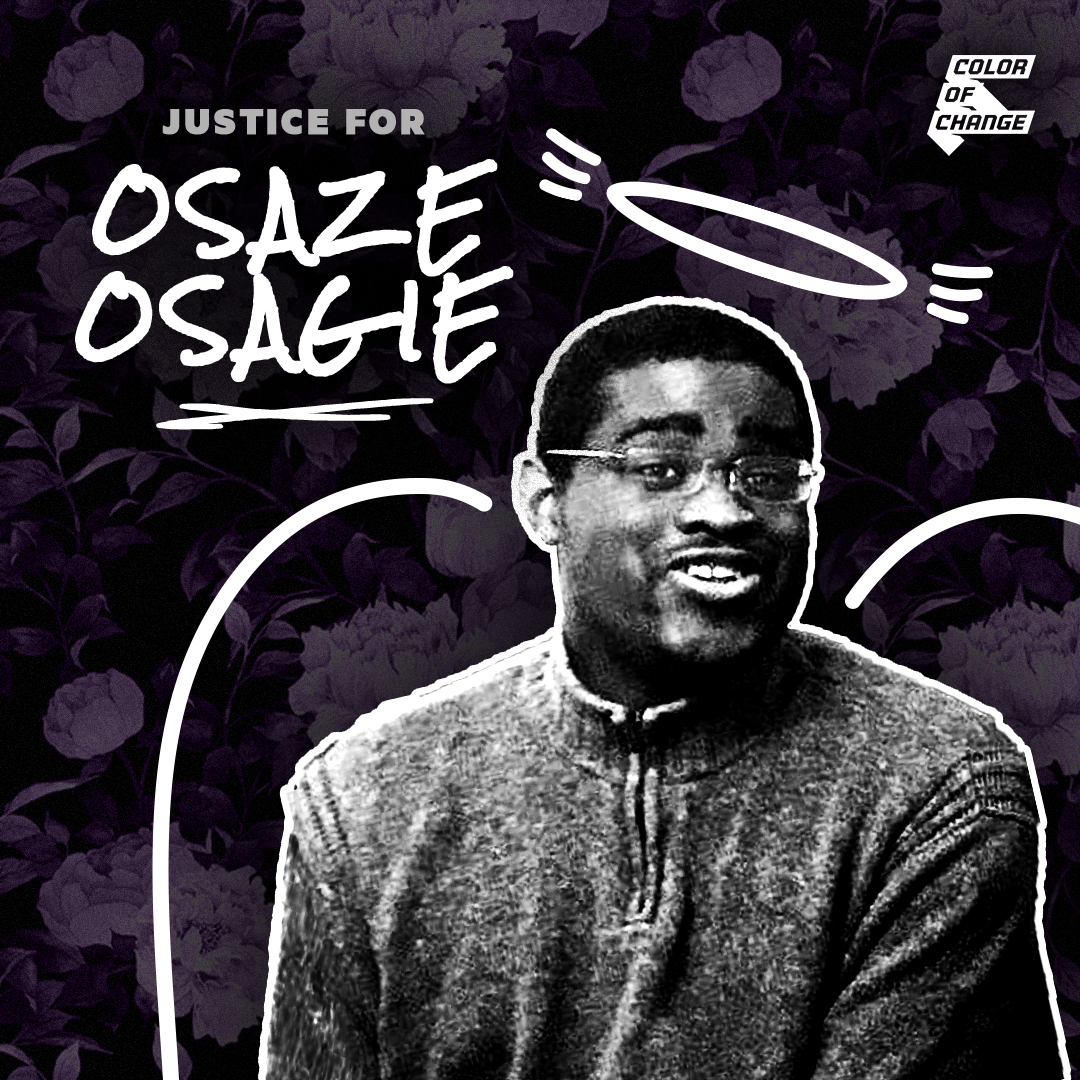Osaze was murdered in his home by cops who showed up to perform a "welfare check"
Demand State College Mayor Donald Hahn take immediate action and call for a full investigation.
Dear friend,
A Black father called the police for help. They murdered his son instead.
On March 20th in State College, PA, 29-year-old Osaze Osagie’s father called the police requesting they perform a wellness check on his autistic son. When three police officers showed up to Osaze’s apartment to serve a “mental health warrant”, they fired multiple bullets into Osaze’s body, eventually killing him.1
Osaze is dead and the three police officers involved in his death are free to collect their paychecks while remaining anonymous and protected by their department. It has been nineteen days and the names of the officers involved have yet to be released. Police officials have been dragging their feet in their investigation into what the coroner has classified as a homicide.2
The current investigation by the State College police department continues to be shrouded in secrecy. Put simply, we need the truth. That’s why we’re calling on State College Mayor Hahn, who has full authority over the police department, to immediately fire all officers involved, lead an independent investigation into Osaze’s murder, and have trained unarmed mental health specialists as first responders for wellness checks-- NOT the police. Dear friend, we need your help to bring justice to Osaze’s family. Will you join us ?
We join the call from Osaze’s family and their attorneys in calling for a transparent and independent investigation into the murder.3 We need an independent investigation because we know that police departments can’t be trusted to carry out unbiased investigations of their own police officers. The Chicago police department didn’t give us the truth when they murdered Laquan McDonald. The Baltimore police department did the same after they murdered Freddie Gray. Momentum is building in State College with students and community members organizing actions and vigils, calling for justice for Osaze.4
The police officers who went to Osaze’s home knew from the very beginning that they were dealing with a young man who was in need of help. His father simply wanted his son to be safe. The officers used what is called a “mental health warrant,” which is an authorization that allows police officers to take someone into custody if they feel the person is a “safety threat.”5 The officers had one duty--check on the wellbeing of Osaze. This instance perfectly highlights how any interaction with law enforcement can mean a death warrant for Black people, especially those experiencing mental health crises.
This criminalization of Black people with mental health differences is nothing new. In 2016, Deborah Danner, a mentally ill 66-year-old woman, was murdered by police in the Bronx.6 And just last year in Atlanta, the family of Shukri Said called 911 to help her and when the police arrived they fatally shot her.7 Highly skilled unarmed mental health professionals should be the first resort in responding to a mental health crisis. Police officers, who are pillars of a violent and punitive system, are not reliable sources of support for people in mental health crises.
We need to create systems that protect our people, and not systems that harass, criminalize, and murder those with different mental health needs. A mental health crisis is not a crime.
We’ve seen how this progressive mental health model can work. In Eugene, OR, when someone makes a call to 911 about someone in a mental health crisis, mental health professionals (called CAHOOTS) are dispatched--not police.8 This program has been in place for 30 years. Not only has the program saved the police department money by taking over low-priority calls, people in mental health crises no longer face the deadly threat of having armed and untrained officers show up to “help” them. By implementing a policy to have mental health professionals respond to people in a mental health crisis, we can begin to end the criminalization and unnecessary policing of mental health.
Until justice is real,
Clarise, Rashad, Arisha, Scott, Erika, Leonard, Kristen M., Marena, Marybeth, Tamar, Madison, Kristen P. and the rest of the Color Of Change team
References :
1. "A 'parent's worst nightmare.' Family, ACLU, want answers after State College shooting". Centre Daily News, 27 March 2019. https://act.colorofchange.org/go/123344?t=9&akid=26040%2E1942551%2ELM6QSJ
2. "A 'parent's worst nightmare.' Family, ACLU, want answers after State College shooting". Centre Daily News, 27 March 2019. https://act.colorofchange.org/go/123344?t=11&akid=26040%2E1942551%2ELM6QSJ
3. "ACLU-PA Statement on the Officer-Involved Shooting Death of Osaze Osagie". ACLU Pennsylvania, 27 March 2019. https://act.colorofchange.org/go/126648?t=13&akid=26040%2E1942551%2ELM6QSJ
4. "Vigil held Thursday honors life of Osaze Osagie, protests racism and police brutality". The Daily Collegian, 22 March 2019. https://act.colorofchange.org/go/126649?t=15&akid=26040%2E1942551%2ELM6QSJ
5. "Pennsylvania Mental Health Laws and Regulations". University of Pittsburgh, 4 January 2004 https://act.colorofchange.org/go/126650?t=17&akid=26040%2E1942551%2ELM6QSJ
6. "New York City Agrees to Pay $2 Million to Family of Mentally Ill Woman Killed by Police". The New York Times, 13 December 2018. https://act.colorofchange.org/go/126651?t=19&akid=26040%2E1942551%2ELM6QSJ
7. "Fatal police shooting of mentally ill Somali-American woman probed". CBS News, 1 May 2018. https://act.colorofchange.org/go/126652?t=21&akid=26040%2E1942551%2ELM6QSJ
8. "CAHOOTS an alternative to traditional police, ambulance response". KVAL Eugene Oregon, 5 February 2016. https://act.colorofchange.org/go/126653?t=23&akid=26040%2E1942551%2ELM6QSJ

Color Of Change is building a movement to elevate the voices of Black folks and our allies, and win real social and political change. Help keep our movement strong.

Aucun commentaire:
Enregistrer un commentaire